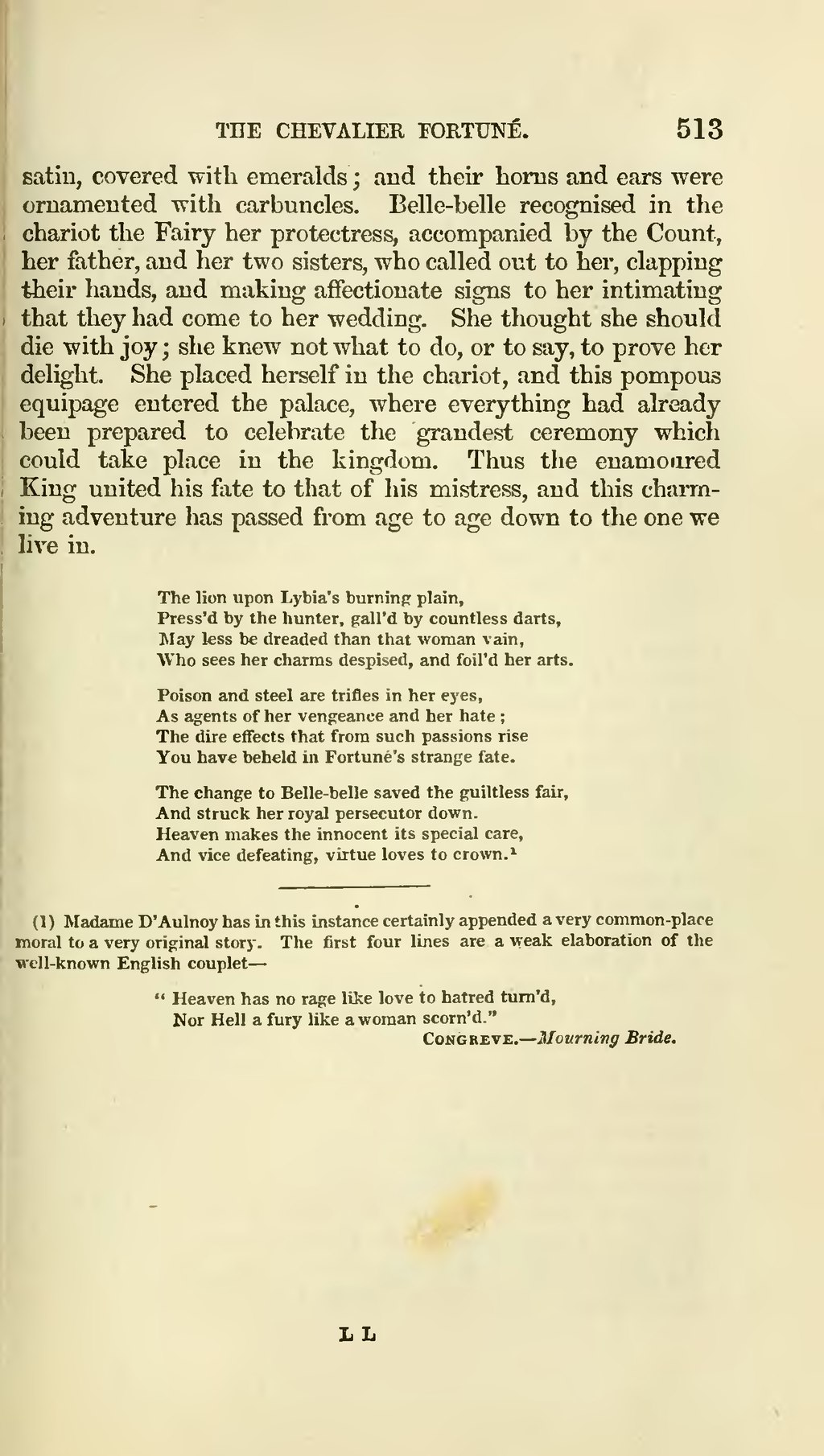satin, covered with emeralds; and their horns and ears were ornamented with carbuncles. Belle-belle recognised in the chariot the Fairy her protectress, accompanied by the Count, her father, and her two sisters, who called out to her, clapping their hands, and making affectionate signs to her intimating that they had come to her wedding. She thought she should die with joy; she knew not what to do, or to say, to prove her delight. She placed herself in the chariot, and this pompous equipage entered the palace, where everything had already been prepared to celebrate the grandest ceremony which could take place in the kingdom. Thus the enamoured King united his fate to that of his mistress, and this charming adventure has passed from age to age down to the one we live in.
The lion upon Lybia's burning plain,
Press'd by the hunter, gall'd by countless darts,
May less be dreaded than that woman vain,
Who sees her charms despised, and foil'd her arts.
Poison and steel are trifles in her eyes,
As agents of her vengeance and her hate;
The dire effects that from such passions rise
You have beheld in Fortuné's strange fate.
The change to Belle-belle saved the guiltless fair,
And struck her royal persecutor down.
Heaven makes the innocent its special care,
And vice defeating, virtue loves to crown.[1]
- ↑ Madame D'Aulnoy has in this instance certainly appended a very common-place moral to a very original story. The first four lines are a weak elaboration of the well-known English couplet—
"Heaven has no rage like love to hatred turn'd,
Nor Hell a fury like a woman scorn'd."
Congreve.—Mourning Bride.
